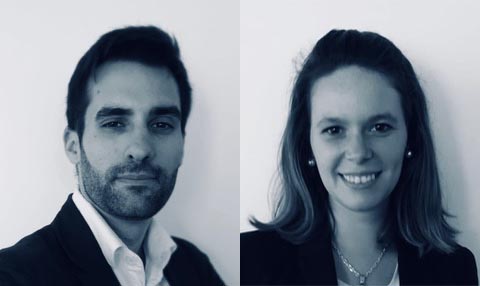INTERVIEW: Gerónimo Caro Díaz & Romina Fernández, Cannabis & Hemp Studies Center, Uruguay
HempToday: What was the impetus behind the startup of CECC?
Romina Fernández: There is a great need for education, first to continue to communicate that cannabis is not only a plant with psychoactive components but that there is a world of uses for the crop. It is these issues in which the public needs to be educated after 100 years of prohibition of an entire industry.
Gerónimo Caro Díaz: From an industry standpoint, we can know a lot about laws, accounting, cannabis agronomy and botany without any diploma; but we need collective knowledge to advance this new industry.
HT: We know that the CBD is attractive, but what other hemp subjects are in your curriculum?
GCD: In addition to the medicinal component, we’ll also offer units on textiles, food, biofuel, bioplastic, cellulose for paper and hempcrete construction. We see the latter being a fundamental tool to eradicate the housing problem of Latin America through an insulating, pest-resistant and ecological material.
HT: Tell us about the faculty that the CECC will have.
RF: Globalization allows us to call on experts in each subject even if they are scattered around the world. We’re in contact with future presenters from Israel, the U.S., Canada, Australia, Brazil and Spain. We also have a team in Uruguay excited to collaborate in this great cause. There is no evolution without education. Our experts understand this principle and are willing to give of themselves to help advance the industry.
HT: What are the plans for the 75 acres of land on the Juan Lacaze campus?
RF: The first stage of the project will be a plantation of industrial hemp on one-third of the land with the aim of generating a first production to reinvest in our Center. In a second stage, 30 hectares will be planted, adding an online education platform and the use of hemp fiber for the production of hempcrete. We plan the study center to be built in 2021.
HT: What will CECC do in the area of research?
RF: The objective is to work hand in hand with other institutions around the world since we start from the fact that the larger the sampling and database, the better conclusions can be obtained. At the practical level for the students, we plan two laboratories to perform tests and analysis.
HT: What does the hemp landscape look like in Latin America?
GCD: Cultivation, production and distribution of hemp is legal throughout the continent, and a system of effective banking and regulation for trade is in place. Latin America produces a tremendous amount of food, which could be exported. From the textile and construction point of view, a great revolution can be generated if legislators, entrepreneurs and investors work together to take advantage of the opportunities the crop presents.
HT: What’s your vision for the hemp economy?
GCD: Through a single crop that does not erode the land, we can obtain food, clothing, construction material, biofuel, bioplastic and many things yet to be discovered – creating jobs and the necessary technology along the way. All of this while also taking care of the planet, our only home.
Gerónimo Caro Díaz and Romina Fernández are founding board members of the Uruguay-based Cannabis and Hemp Studies Center (CECC), which is developing an educational and research initiative for hemp and cannabis at Juan Lacaze, Uruguay. Díaz studied computer science and previously worked at Aldey Institute, Montevideo. Fernández studied business administraton and has served as a business coach and in operations management.


